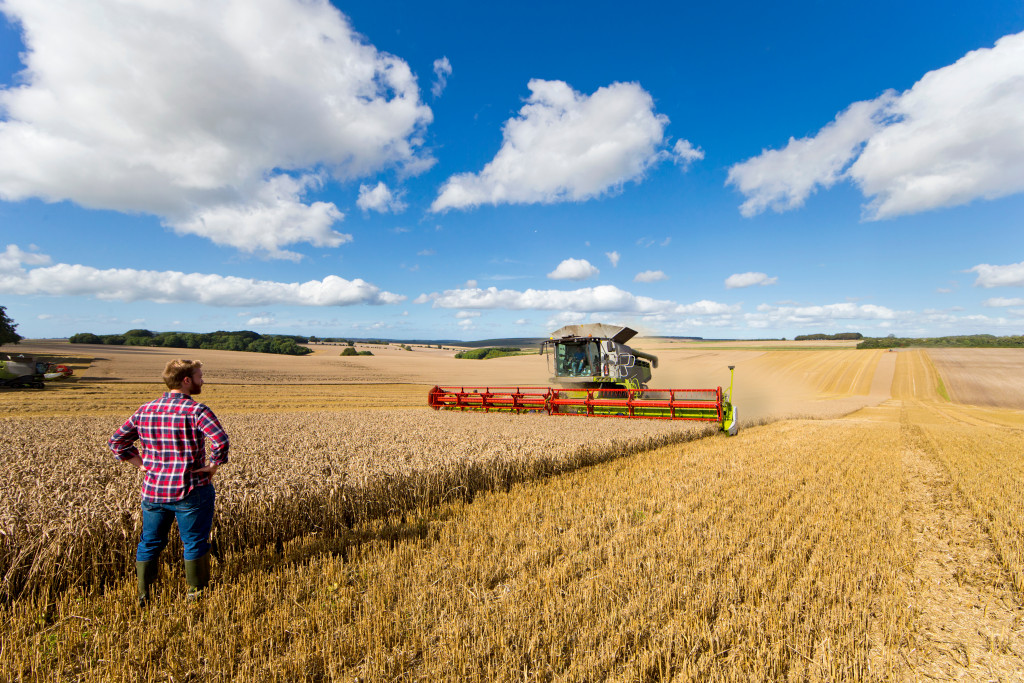The agricultural industry is a very profitable one to enter. Farming is the process of planting and harvesting crops or raising livestock for food, fiber, or other purposes. It is an ancient profession that has been around since the dawn of civilization. The agricultural industry has seen many changes over the years, but it remains a vital part of our economy and way of life.
The agricultural industry is a vital part of the United States economy. The sector contributed $1.06 trillion to the US economy, or about 5% of GDP. That same year, 2.6 million farms in the United States covered 913 million acres of land. The agricultural industry employs about 1% of the US workforce or about 2.6 million people.
Farming is a very stable industry because it is not as susceptible to economic downturns as other sectors. As a result, you might want to try your luck in that industry. Here are a few tips to help you run a stable agricultural business.
Secure a Large Agricultural Land
A large piece of land is one of the most important things you need for your agricultural business. The size of your land will determine the scale of your operation and the type of crops or livestock you can raise. It is essential to secure a large enough piece of land so that you can expand your business as needed. You might want to consider buying a farm if you are serious about getting into the agricultural industry.
However, it can be an expensive step to take. You will need to factor in the cost of the land, as well as the cost of any buildings or equipment you might need. You can also lease land from a farmer or other landowner. It can be more affordable, but you must negotiate the lease terms before signing anything.
However, owning land might be the more cost-efficient option, even if it means paying upfront. Fortunately, agricultural business loans are available to help you finance the purchase of a farm. Those loans typically have low-interest rates and extended repayment terms, making the tactic worthwhile.
Research the Agricultural Industry
Another critical step to take before starting your own agricultural business is to research the industry. You will need to know what types of crops or livestock are in demand and what prices they are fetching. You should also be aware of any new technologies or methods that might be helpful in your operation. Additionally, you will need to know about government regulations that could impact your business.
Identifying your crop or livestock assets will allow you to develop a financial strategy and business model. Decide on the products you want to produce and the services you want to offer. You might want to specialize in a particular type of crop or livestock. For example, you could focus on organic produce or free-range eggs. Alternatively, you could choose to diversify your operation by raising multiple types of crops or livestock.
Your research should include the items mentioned above to prepare for the venture. It might take time, but it will be worth the investment when you stabilize your business.
Market Your Products

The agricultural industry is stable, attracting many entrepreneurs annually. However, it is also very competitive. To be successful, you need to market your products or services effectively. You will need to find ways to differentiate your business from the competition. One way to do that is by offering something unique that other farmers are not. For example, you could focus on organic produce or free-range eggs. Alternatively, you could choose to diversify your operation by raising multiple types of crops or livestock.
You will also need to create a marketing plan that outlines how you will reach your target customer base. You might want to use traditional methods like print or radio advertising. However, it would help if you also considered using digital marketing techniques like search engine optimization and social media marketing. These tactics can help you reach a wider audience and generate more leads.
Investing in Cost-Efficient Tools and Equipment
You must invest in the right tools and equipment for your agricultural business. The type of equipment you need will depend on the size and scope of your operation. You might need to purchase tractors, combines, or other large pieces of machinery. However, there are also many smaller items that you will need, such as hoes, rakes, and shovels.
When buying equipment, it is essential to find cost-efficient options. You might want to buy used equipment instead of new. Alternatively, you could look for deals on rental or lease agreements. Whichever route you choose, compare prices before making any decisions.
Conclusion
Starting your own agricultural business can be a rewarding experience. However, doing your research and preparing for the venture is essential. Taking the proper steps can set your business up for success.

